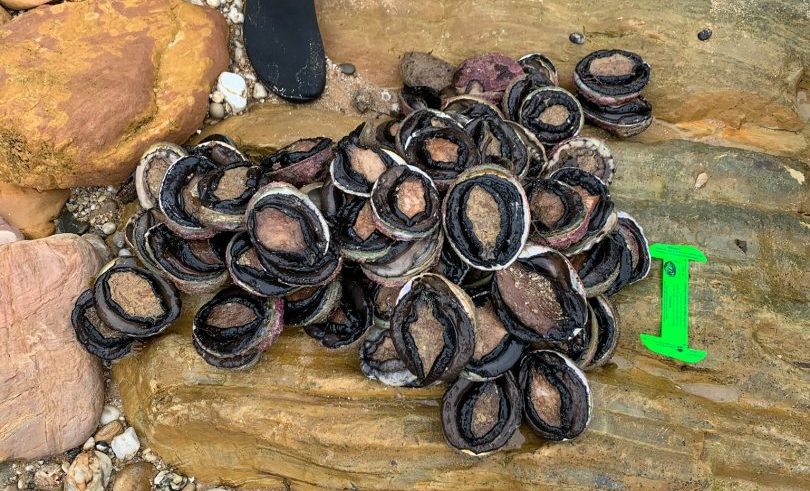
First Nations fishers feel targeted by authorities when it comes to prosecutions. Photo: DPI Fisheries.
Many First Nations fishers who collect seafood to feed their families or as part of their cultural practice feel targeted by authorities.
Statewide data suggests Indigenous people face a disproportionate rate of fishing-related charges and incarceration because of those offences relative to the size of their population.
However, the NSW Government claims they represent a low percentage of fishing-related prosecutions on the NSW South Coast.
Statistics from the NSW Bureau of Crime Statistics and Research (BOCSAR) show from July 2011 to June 2021, 405 charges were finalised against Indigenous people under the Fisheries Management Act 1994, and 19 people received custodial penalties.
During this same period, 817 charges were finalised against non-Indigenous people, and four received custodial penalties.
It is estimated Indigenous Australians comprised only 3.4 per cent of NSW’s population in 2016, but BOCSAR’s statistics suggests about 33 per cent of the total fishing-related charges from 2011 to 2021 were laid against Indigenous people.
First Nations people also face higher rates of incarceration in general. Aboriginal Affairs NSW says in 2019 Aboriginal people in the state were 9.3 times more likely than non-Aboriginal people to be imprisoned.
NSW Council for Civil Liberties, Nature Conservation Council and Oxfam Australia recently joined together to condemn the NSW Government, claiming it has been targeting First Nations fishers.
Tony McAvoy SC, a Wirdi man and Australia’s first Indigenous Australian senior counsel, said First Nations fishers are subject to harassment, arrest and seizure of their property at a rate different to the rest of the NSW population.
He said this is because of their Aboriginality and the failure of the NSW Government to uphold and protect native title rights.
“This amounts to a denial of the right to life because it is taking away food sources,” said Mr McAvoy.
One case involves a 74-year-old great-grandfather and Yuin elder who was apprehended in Narooma with a bag of abalone in 2018.
It is the third time in five years he has been prosecuted, although two prosecutions were withdrawn and one charge was also recently withdrawn.
Danny Chapman, councillor for NSW Aboriginal Land Council, said to make First Nations people go through the expense and stress of a native title defence is an “unacceptable abuse” of government power.
“To do it three times in such a short space of time feels like they are trying to wipe out our cultural practices,” said the Walbunga man.
However, the NSW Department of Primary Industries (DPI) said Indigenous Australians represent a low percentage of fisheries-related prosecution on the South Coast.
A department spokesperson said of prosecutions to October 2021 in the region, four were brought against Indigenous people and 22 were brought against non-Indigenous people.
“The proportion of finalised charges under the Fisheries Management Act 1994 brought against Aboriginal people from 2016 to date is around seven per cent, compared to 84.5 per cent brought against non-Aboriginal people and 8.5 per cent brought against companies,” said the spokesperson.
They said the DPI’s statistics differ from those provided by BOCSAR because of the different time periods and locations being analysed.
“The data that DPI Fisheries provided relates to Aboriginal prosecutions from 2016 to July 2021 from the South Coast,” said the spokesperson.
“The data in the spreadsheet provided by BOCSAR appears to be statewide data from July 2011 to June 2021.”
The DPI spokesperson said there are a range of measures in place to support the continuation of Indigenous cultural fishing, including higher daily take and possession limits.
For instance, the abalone daily limit for cultural fishing is 10, which is five times higher than the recreational limit of two per person.
Permits can also be issued to take more than the limits for a range of species.
“The NSW Department of Primary Industries recognises the cultural and spiritual importance of Sea Country and acknowledges that fishing has always been an important part of the culture of coastal Aboriginal people, and that it continues to play an essential role in connecting family members and communities,” said the spokesperson.
But Ngarra Murray, manager of Oxfam Australia’s First Peoples’ Program, said the government’s enforcement is occurring while there is a complete absence of any program to engage Indigenous Australian people in the sustainable management of their marine resources.
“Oxfam has now worked with the South Coast communities for four years, and we’re yet to see government seriously engage with these marginalised peoples,” said the Wamba Wamba and Yorta Yorta woman.






